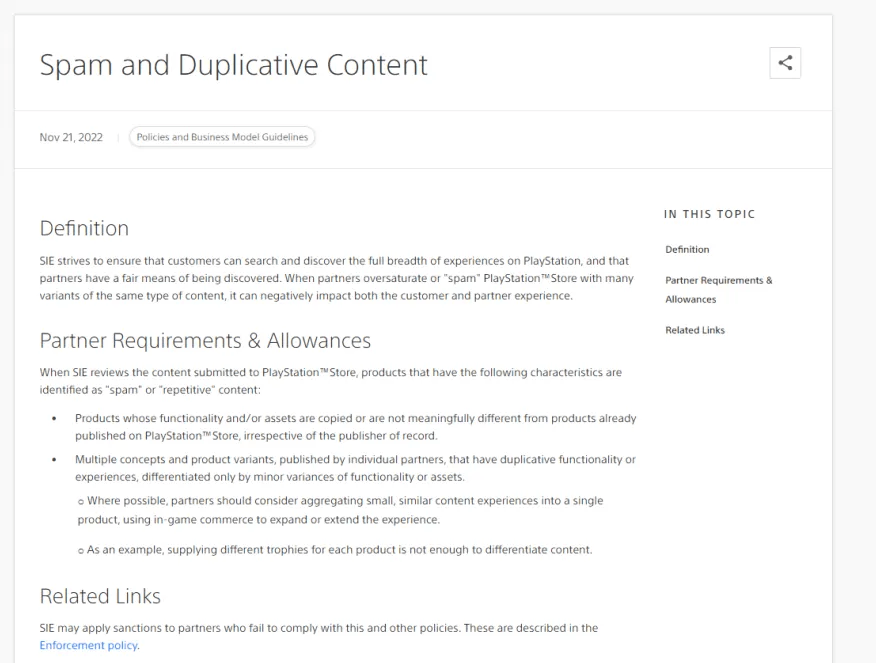Sony has finally addressed the problem with shovelware games. The company will ban developer accounts and delist products that copy assets and are designed only for easy trophy hunting.

What happened?
On November 21, Sony sent a letter to game developers (its screenshot was posted by Dex.Exe), reading, “SIE strives to ensure that customers can search and discover the full breadth of experiences on PlayStation.”
The company will label any games submitted to the PS Store as “spam” or “repetitive” if they copy assets and functionality from other titles. “Multiple concepts and product variants, published by individual partners, that have duplicative functionality or experiences, differentiated only by minor variances of functionality or assets” will also fall under this category.
Any developer or publisher that has breached this policy may be subject to the following actions:
- Delisting from the PS Store;
- The game won’t be featured in “New Releases” or other promotional segments;
- Reducing discoverability and making the product available only via direct link;
- Terminating the developer account and removing all content from the store.

Image credit: Dex.Exe
Why are spam games bad for discoverability?
The so-called “trophy shovelware” is a long-lasting problem on consoles. These are usually very cheap games designed only to get easy and fast achievements, including the much coveted Platinum Trophy.
Simon Carless recently addressed this issue in the GameDiscoverCo newsletter. He mentioned the $1.49 game called The Tiger T, where the player has to just hold R1 to receive achievements.
Despite its primitive look and poor gameplay, it has around 10,000 owners on PlayStation. All for the sake of quick trophies!
There are many publishers, who actually spam the PS Store with such shovelware games. For example, The Tiger T developer Webnetic has over 150 PlayStation titles with static backgrounds, similar assets, and little to no gameplay variety.
Although some may think these products can’t affect other games on the PS Store, they, in fact, hinder overall discoverability and visibility on the platform. Before Sony came up with changes to its content policy, games like The Tiger T used to get in the “New Releases” field, pulling attention to themselves.
So this trophy shovelware has a negative impact on both players and developers. Not only do they detract from the overall user experience, but they also prevent other creators from putting their games in the spotlight.
